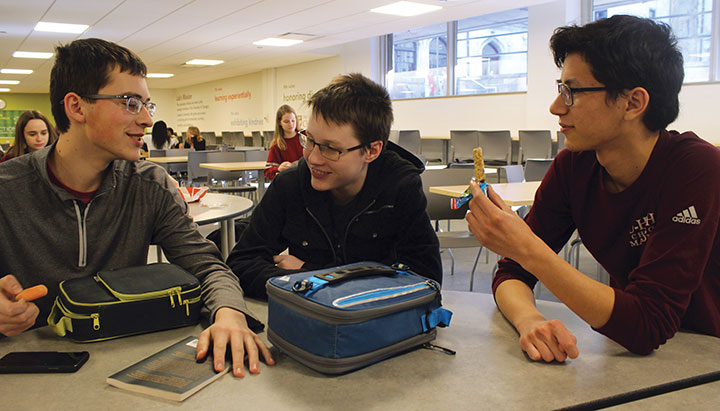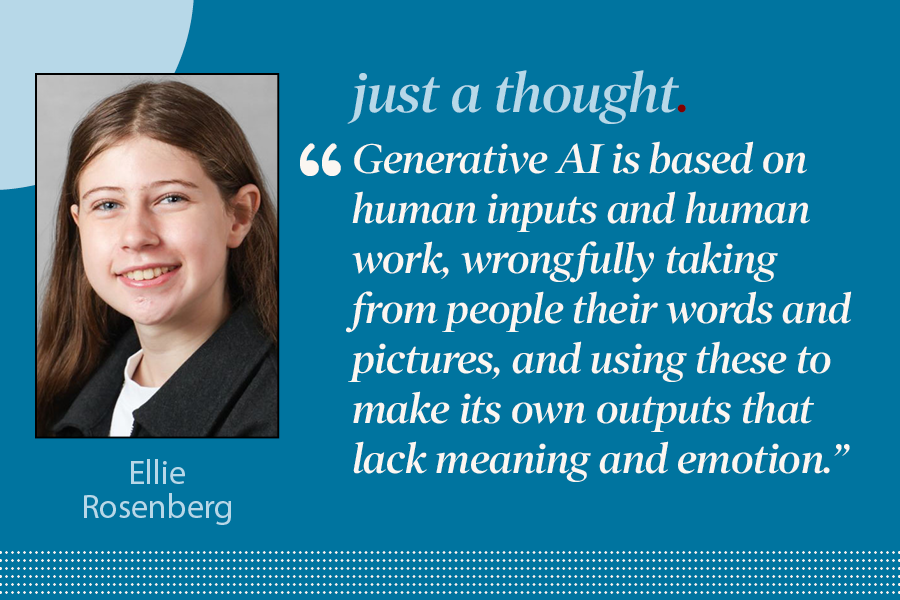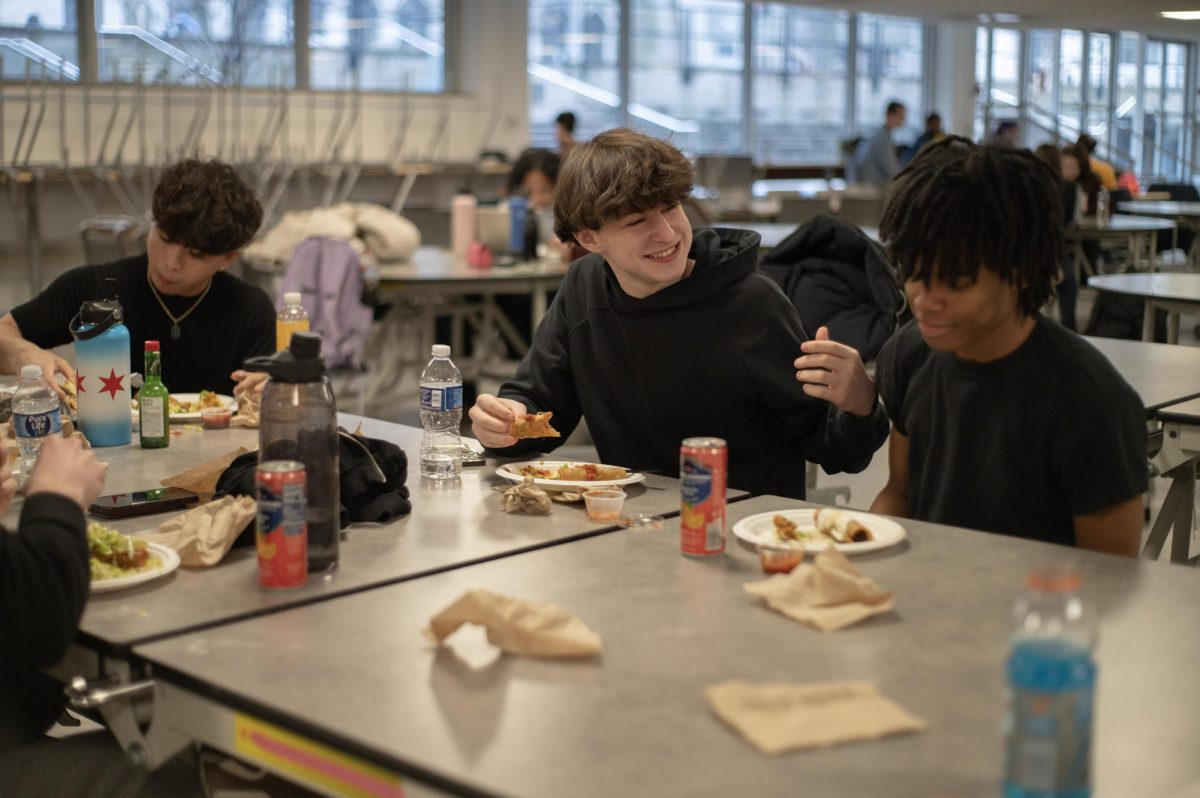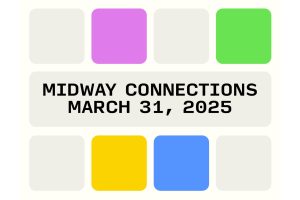After expansion, student body must adapt
January 19, 2018
Lab is at a crossroads. In the aftermath of the planned expansion, dynamics within the student body have shifted. The U-High student body is faced with a decision to either resist the expansion or welcome the benefits of added diversity and new perspectives.

ENJOYING COMMUNITY. Juniors Ben Epley, Derek de Jong and Abraham Zelchenko talk at a cafeteria table during lunch. Ben came to Lab as a freshman, Derek in fourth grade and Abraham in Nursery 3. Their different lengths of time at Lab haven’t affected the strength of their friendships.
In fall quarter, Principal Stephanie Weber spoke to the school at an assembly about inappropriate messages posted to social media. She said at the time that the messages ran counter to the Lab Schools’ values. Some students were quick to assign blame to the influx of newer students who did not grow up as part of the Lab Schools community.
Suzanne Baum, a French and Spanish teacher, who has been a member of the Lab school community as a student, teacher and parent, believes the growing size of the high school may encourage more hateful comments on social media.
“One fear I have is based on recent events in the high school on social media. With the negativity, the racism, the anti-Semitism, I fear that we are going to lose a sense of community,” Ms. Baum said. “We can’t just blame the new people, but I think that there is a deeper sense of responsibility and giving back to the community when you’ve been going to the school since pre-school.”
Ms. Baum also feels that the student body is less diverse than when she began attending the Lab Schools in seventh grade in the 1980s.
“The first thing I noticed in 1993 as a teacher was many fewer African-American students and many more Asian-American students,” Ms. Baum said. “I feel, today, still, there are fewer African-American students than there were in the 1980s.”
According to Irene Reed, a Lab alumna who now serves as director of admissions, the Lab Schools has ongoing efforts to diversify the student body by advertising to communities of across Chicago.
“Each year, members of the admissions team visit more than 20 K-8 schools, as well as school fairs through organizations like High Jump and the Daniel Murphy Scholarship Foundation,” Ms. Reed wrote via email. “The purpose of these fairs is to meet prospective families and explain the tremendous value Lab can bring to a student. While some of the schools admissions [staff] visits have an established relationship with Lab, admissions [staff] makes an effort to reach out to new and different schools in underserved communities, and in communities where families may know less about our school.”
Ms. Weber views the growth as a long-term acclimation process. To help guide the school during this change, the administration will monitor the growing classes and address issues as they arise.
“Growth takes careful planning, and the administration has had a long-term plan to grow the schools. Part of that planning took into consideration the impact on program and school culture including sections and staffing, athletics, student services, and aspects of school culture and community that are not easily measured,” Ms. Weber wrote via email. “Growth by its nature is not seamless, and we will continue examining the impact of growth for the next several years even after the growth is complete both to address concerns and identify opportunities.”
In a similar vein, Dean of Students Ana Campos is confident that the expansion will yield positive results in the future, and she believes that returning members of the Lab Schools community should focus their efforts on welcoming new students.
“Anytime you have a community that people have a deep sense of ownership for, and a deep commitment to, and you start to grow that community, and it starts to feel different, people always want to hunker down,” Ms. Campos said. “I totally understand that, but I’m not afraid of it because in the grand scheme of things these are the decisions made over 10 years ago by people who aren’t here anymore. I can either focus on what’s challenging about it, or I can spend my energy on developing strategies to try and work within the situation.”
Moving forward, Ms. Campos believes increasing school-sponsored events will help unify the student body and further welcome new students into the community.
Ms. Campos said she feels one challenge is figuring out how people get to know and to recognize one another and how to encourage more of that within the Lab community.
She said, “One of the things I have been thinking about is how we can create additional grade level events throughout a school year in order to encourage more class unity and all-school events in order to bring together the whole school.”






























































